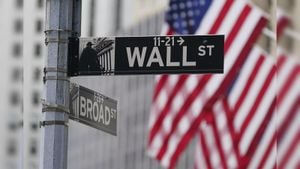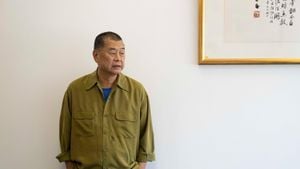China is currently facing the fallout from a chilling series of violent attacks, which have left dozens dead and many more injured. The week beginning November 11, 2024, marked the onset of these harrowing incidents, with three separate attacks sending shockwaves through the populace. One of the most devastating events occurred on November 11, when a man drove his SUV through crowds at a sports center in Zhuhai, resulting in 35 fatalities. Just five days later, on November 16, stabbings erupted at Wuxi University, claiming the lives of eight individuals and injuring 17 others. The sequence of terror concluded with another car crash outside a school on November 19, injuring several students.
What makes these attacks particularly disturbing is the perception they create—amidst rising economic distress, societal grievances are manifesting themselves through extreme violence. Some experts are speculating whether this trend of attacks could signify burgeoning anger against societal structures, particularly among those who feel disenfranchised and hopeless. From economic downturns to inadequate mental health support systems, the contributing factors to these tragedies appear to be myriad.
President Xi Jinping responded to the national crisis by emphasizing the need for improved risk management and urging authorities to learn from the tragic occurrences. Local law enforcement and governments have also renewed their efforts to identify at-risk individuals who may be vulnerable to resorting to acts of violence, particularly focusing on recent financial troubles, breakups, and personal grievances.
China's tight control over media narratives means information about these incidents is often hastily hidden from the public eye. The government’s censorship efforts have been accelerated, as authorities strive to quell discourse surrounding these violent episodes and prevent public outcry. Many posts and images related to these assaults appear to have been expunged from Chinese social media platforms like Weibo and Douyin, leaving much of the local population unaware of the bloodshed occurring within their borders. Critics of the government have pointed out how this stifling strategy not only minimizes the emergence of dialogues about the tragedy, but also obscures the growing resentment within society.
Kevin Slaten, who leads the China Dissent Monitor project, affirmed these concerns, citing numerous instances of censorship surrounding hashtags and posts related to the attacks. He stated, “The government was actively censoring search terms to prevent people from finding information quickly.” According to him, such repression is largely intended to discourage any potential public backlash, as it maintains control over societal narratives.
Notably, the callous nature of these attacks raises questions about mental health support systems currently available to citizens. The tragedies bear similarities to previous violent episodes characterized as “revenge against society,” tapping deep-seated frustrations stemming from rejection and personal hardships. Qin Xiaojie, psychotherapist and founder of the mental health organization CandleX, remarked, “When you see someone who is attacking another person or society, underneath, it really reflects [their] instability and desperation.”
These sentiments echo among experts who perceive the state’s lack of effective measures to accommodate mental health issues and economic distress as key contributors to the rising violence.
External observers have also cautioned against displaying public mourning for the victims, as the Chinese government has cultivated a culture of repression, rapidly censoring discussions around the recent tragedies. This interaction with public sentiment has instigated unease among citizens, as underlying psychological issues manifest outwardly through violence.
The chilling aftermath of these attacks has generated heated discussions about the current efficacy of China’s social safety nets and structures. Eli Friedman, professor at Cornell University’s School of Industrial and Labor Relations, explained, “For hundreds of millions of migrant workers, there is not an adequate social safety net,” with unemployment and related assistance largely inaccessible to vulnerable populations. The declining economy, coupled with high-profile incidents of monetary grievances, has created fertile ground for deep-rooted anger to fester.
Statistics reveal troubling trends; reports decay from 2024 show over 120 individuals perishing from violent occurrences across urban China—knives and vehicles were the instruments of these attacks. With the month of November recording the highest fatalities, the grim reality of these assaults sheds light on societal fractures.
The recent attacks have highlighted systemic issues within the Chinese social framework, where economic despair can push individuals to commit irreversible acts against fellow citizens. Some analysts are quick to draw parallels between police announcements, which marked these attacks as mere “isolated incidents,” and historical circumstances surrounding violent uprisings globally. They fear ignoring the root causes of social discontent will only pave the way for escalated tragedies.
Despite President Xi Jinping’s advisory to “strengthen prevention and control,” conversations surrounding real solutions to mitigate future occurrences remain scant. This lack of acknowledgment has left experts worried about the genuine prospects for safety and security within China.
Community leaders, mental health professionals, and everyday citizens alike are struggling to find their footing as common herds of anxiety grip society—innocent lives have been caught within the storefronts of heartbreak, suffering, and anger. Legitimate calls for change and open dialogues seem to be overshadowed by the government's efforts to silence them before they can gain traction.



